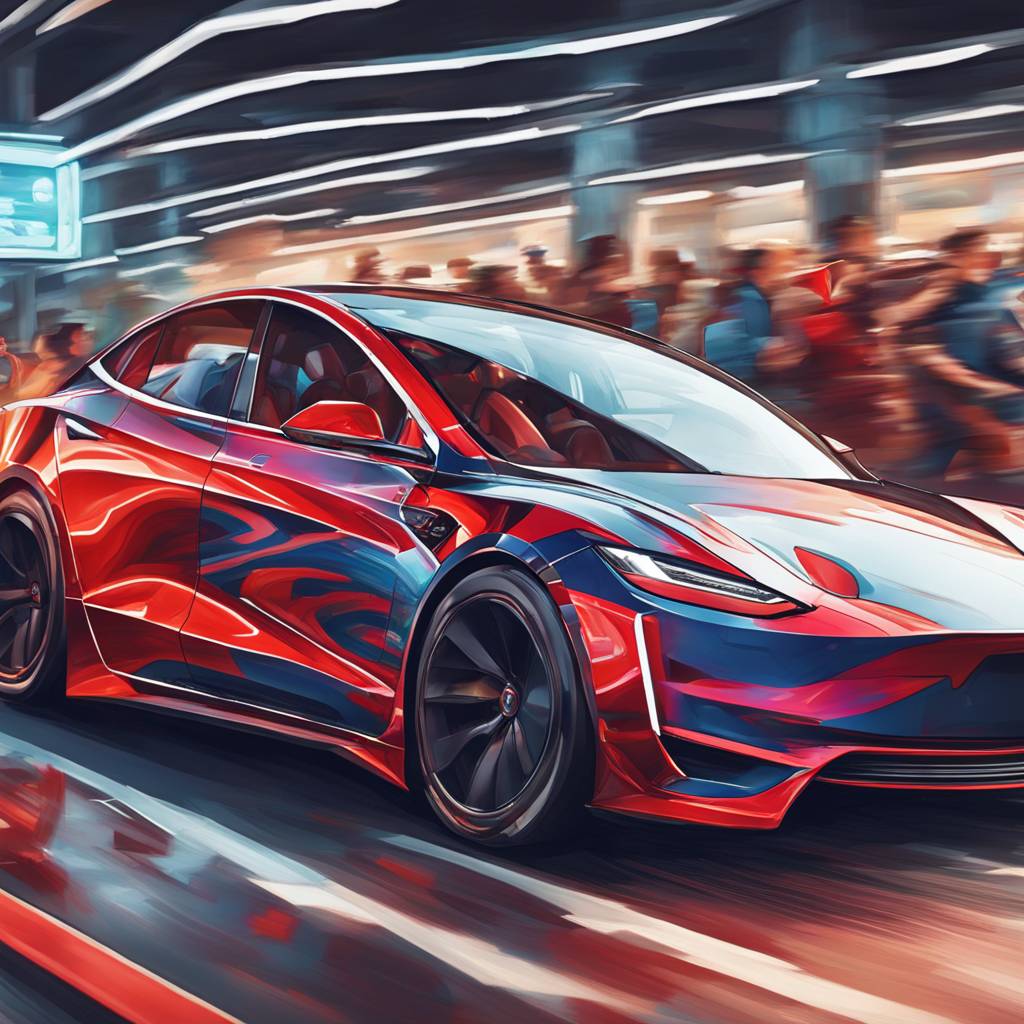During the interview, Mr He Xiaopeng emphasized that the current price war in China’s electric vehicle (EV) industry is intense and is expected to continue for two to three years. He noted that the competition is fierce among EV manufacturers as they strive to gain market share in the rapidly growing industry. The price war is fueled by various factors, including government subsidies, technological advancements, and increasing consumer demand for EVs. This competitive landscape is leading to a challenging environment for companies in the EV industry, as they must find ways to differentiate themselves and attract customers in an increasingly crowded marketplace.
Mr He Xiaopeng highlighted the importance of innovation and technological advancements in the EV industry, stating that companies must continue to invest in research and development to stay ahead of the competition. He emphasized the role of cutting-edge technologies such as artificial intelligence and autonomous driving in shaping the future of the EV market. By leveraging these technologies, companies can improve the performance, safety, and efficiency of their electric vehicles, setting themselves apart from competitors and meeting the evolving needs of consumers.
In the midst of the intense price war, Mr He Xiaopeng acknowledged the challenges faced by companies in the EV industry, including pressure on profit margins and the need to balance competitiveness with sustainability. He emphasized the importance of finding a balance between offering competitive prices to attract customers and maintaining a sustainable business model in the long run. This balance is crucial for the success of companies in the EV industry, as they navigate the complex landscape of government policies, market trends, and consumer preferences.
Looking ahead, Mr He Xiaopeng expressed optimism about the future of the EV industry in China, citing the country’s strong commitment to promoting the development of electric vehicles. He highlighted the government’s support for the industry through policies such as subsidies, incentives, and infrastructure development. As a result, he believes that the EV market in China will continue to grow rapidly in the coming years, providing ample opportunities for companies to innovate, expand their market presence, and reach new customers. Despite the challenges of the price war, Mr He Xiaopeng remains confident in the long-term potential of the EV industry in China.
In conclusion, Mr He Xiaopeng’s insights shed light on the current state of the EV industry in China and the challenges and opportunities facing companies in this competitive market. The ongoing price war is expected to continue for the next two to three years, driving companies to innovate, differentiate themselves, and find a balance between competitiveness and sustainability. As the industry evolves and technological advancements shape the future of electric vehicles, companies must adapt to stay ahead of the competition and meet the evolving needs of consumers. With the government’s support and a growing market demand for electric vehicles, the future looks promising for the EV industry in China.


